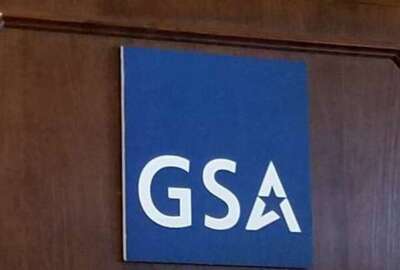
What’s Congress got planned for federal contractors?
The $3 trillion proposal the House narrowly passed last week has proposals in it that will impact federal contractors.
Best listening experience is on Chrome, Firefox or Safari. Subscribe to Federal Drive’s daily audio interviews on Apple Podcasts or PodcastOne.
When the summary of a bill runs to 90 pages, you know its congressional authors have added lots of goodies for everybody. Indeed they have in the $3 trillion proposal the House narrowly passed last week. With what federal contractors have found in it, Federal Drive with Tom Temin spoke with the President and CEO of the Professional Services Council, David Berteau. You can read the PSC press release here.
Interview transcript:
Tom Temin: And David, before we get to that, let’s talk about first of all, nobody can spend money as easily until the government reopens. And what what does the contractor sense of what’s going on, especially in the DC area where there’s three very different approaches in the jurisdictions to generally opening?
David Berteau: You’re right, Tom, and DC is not the only place where in fact, the ability of the federal government to return to their offices or their other facilities is affected by what’s going on in the local jurisdictions. It’s really happening in almost every large concentration of federal employees and contractor workforce. There’s three things that we’re watching for here. Number one, of course, is that the federal government continues to mandate what happens to its workforce, federal civilians, uniformed personnel, in sort of a centralized top down way, right? A memorandum comes out from OMB and the Office of Personnel Management and flows down to the agencies. But for contractors, it’s still a world in which contract decisions are made by the contracting officers one contract at a time unless there’s guidance that supersedes that. What we saw back in March when the government began to close its facilities and say, you know, go home and telework, is that for contractors, this was a challenge because the contracting officer would say, oh teleworking is not authorized under your contract. But what we saw in the middle of March was was guidance from OMB that was very clear to maximize teleworking for contractors, and that has largely happened where it can. Now the question is what happens when you go back? Do you have centralized guidance from the top down? We do have a memorandum from OMB and OPM back in mid April that says follow the same guidelines the rest of the country is following. But what does that mean for federal agencies? And what does it mean for contractors? Does it mean it has to still be done one contract at a time, one contracting officer at a time? PSC is saying, no you really need to learn the lessons from this and to take advantage of what we’ve seen with maximize teleworking, maybe it makes sense to continue doing that. As you know, Tom, a lot of government facilities, offices are not set up where everybody is six or eight or ten feet apart from one another. Doors are not set up so that you can actually go back and forth. I’ve seen studies that said if you require six feet of separation inside an elevator, it’ll take people all day just to get to work. Right. And so these are the kinds of things that come into play, but there’s larger issues as well. What’s the availability of childcare? Are the schools open? What’s the availability of the community transportation system? You know, Metro is saying they don’t plan to reopen fully for a long time and they’d like for the government not to do that as well. What about facilities where in fact you’ve got to follow social distancing or physical distancing so you can have safety here? What about protective equipment? Does everybody have to have masks? Who sets the standards? Who provides those masks? If a company has to pay for it, is that an allowable cost? These are all issues that need to be resolved before we can begin to make sense out of this.
Tom Temin: And so how does this all affect just day to day communications? When you’re trying to talk to a contracting officer? Does this mean you don’t know where they might be in the first place?
David Berteau: Right. So we have recommended to our members of course, they first of all, figure out what’s in their own interest, right? What makes sense from from each company’s point of view, and every company has been tracking what its employees do. It’s interesting, Tom, all my members can tell you how many of their employees are teleworking, the federal government actually as far as I can tell, cannot tell you how many people are teleworking at any given agency and the government needs to know this sort of thing. So the first thing for companies is determine what their own situation is and what’s in their best interest. What makes sense to them for productivity from a delivering results on their contracts and so on. But the second is to be talking with their contracting officers and their programs about what their plans are. And then the third is we as a trade association are providing input to the agencies as well. Some agencies, like the Defense Department, like the US Agency for International Development, have actually asked us for input in this process. Other agencies that we’re going to provide them that input and help them begin to think about it.
Tom Temin: And let’s get to that $3 trillion bill, which we know has no chance of happening in the Senate, but maybe some of the provisions do.
David Berteau: There’s general agreement that there will be another emergency supplemental at somewhere along the way, as COVID-19 process continues, and as the emergence continues, what the ultimate shape of that bill will be, nobody’s agreed on. But there are plenty of discussions about what’s going to be in it and what’s not going to be in. What matters to us is that there are provisions in it that take account of what passed before in the CARES Act for instance, back at the end of March, and implements those and also takes account of things that will happen as the government begins to get back to to its offices. By the way, we don’t really use the term reopening when it comes to contract or supporting the government because, in our view, we never actually stopped and we never closed and so there’s no reopening, but it is a restart. It is a return to facilities kind of thing. Some of those provisions, for instance, are to continue maximizing telework. And actually, there’s a provision in the bill that says, you know, maximize that telework, itsaves lives, probably reduces costs, some indications are it increases productivity, and increases worker satisfaction and retention. Another provision would require paying prime contractors within 15 days of the submission of a valid invoice. We call that accelerated payments. It is required, but it is not done everywhere. And so we want to maximize that as well. That’s just part of the idea of keep the economy going. You know, there’s a stimulus effect of the government actually just doing its work and paying its contractors. There’s some issues about reimbursement under a particular section of the CARES Act called 3610, which would authorize agencies to reimburse employees to keep key personnel and skilled personnel on the payroll, even if they can’t access the facility in a mobile ready state, keep them on the payroll, but in in a paid leave kind of a sense, and then government would provide some reimbursement for that. A lot of ambiguity, a lot of inconsistencies in the implementation that. We use this law to help clarify some of those definitions and ambiguities. And then finally, there’s a provision that says don’t punish contractors by giving them an adverse performance rating if there’s some kind of a contract disruption. It’s caused by COVID-19 and the coronavirus emergency. Companies should not be punished for things like this that are completely out of their control. So those are provisions that are in the bill and we’d like to see those stay in no matter what the final version of the bill is that comes out of the Congress.
Tom Temin: Because there is a lot of money In that bill, as it’s written right now, that schmears all over the federal government for lots of programs and things — the question is, I guess maybe it becomes philosophical, should the government be printing that much more money?
David Berteau: But the provisions apply to more than just the new money, the provisions applied to the FY 20 appropriations that were enacted last December, and the agencies are still moving forward with. And of course, there are some additional funds provided for certain areas. But what we have focused on at PSC from the beginning is to keep all of the government operating not just the part that’s dealing with COVID-19, but the part that actually is needed to keep America going, right? And so that’s the 1.3 trillion that was appropriated in discretionary appropriations last December. And so the provisions actually apply to that as well as anything. There’s some additional provisions that we care about in there. You know, there’s a leave sharing programs that the government is allowed to do where if one person is out of leave, somebody else can loan them their leave or give them their leave. Companies can do that as well except there’s a tax impact. And so we’ve got a push for tax equality for lease sharing programs between contractors in the government. There’s an implementation of supply chain security, you know, not using improper foreign video surveillance cameras, etc. And the deadline for that is going to be very hard to implement on your COVID-19 and so we’ve asked for an extension of that deadline, not because we think it is an important issue, but because it needs to be done right. And then finally, we know that there are going to be a lot of issues with existing contracts that are going to require what is known as a request for equitable adjustment. And that is paperwork submitted to the government says the following things changed, we need to make these adjustments to the contract that has these financial implications. We know that government takes a long time with those. We actually have member companies who submitted requests for equitable adjustment from the January 2019 partial federal government shutdown, so that’s now 16 months ago, and some of those requests have yet to be resolved. And so we’re pushing for expedicted means of resolving those in a favorable way and not spending too much time on the unnecessarily moving forward.
Tom Temin: David Berteau is president and CEO of the Professional Services Council. As always, thanks so much.
David Berteau: Thanks, Tom. We’ll see how this goes.
Copyright © 2025 Federal News Network. All rights reserved. This website is not intended for users located within the European Economic Area.
Tom Temin is host of the Federal Drive and has been providing insight on federal technology and management issues for more than 30 years.
Follow @tteminWFED
Related Stories





